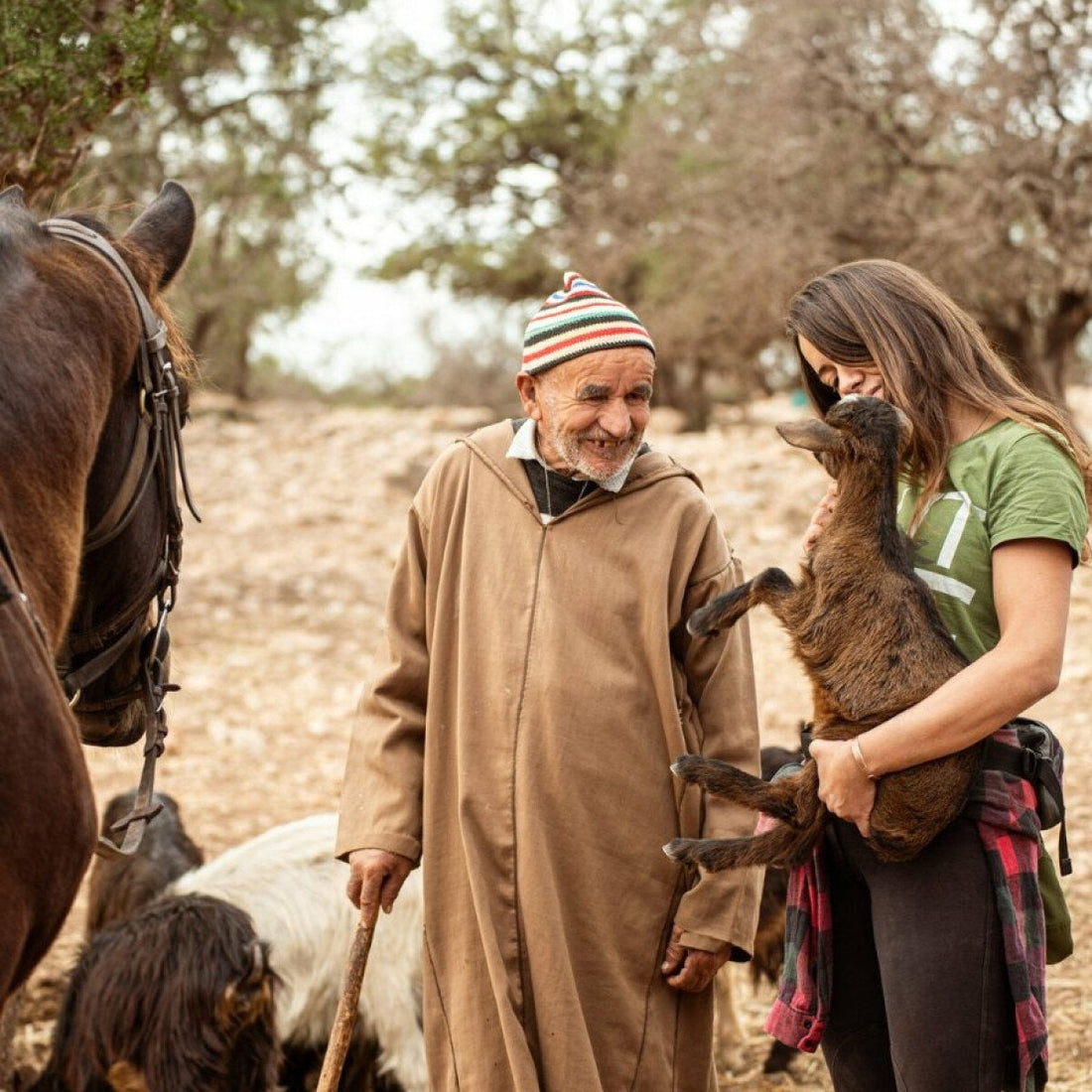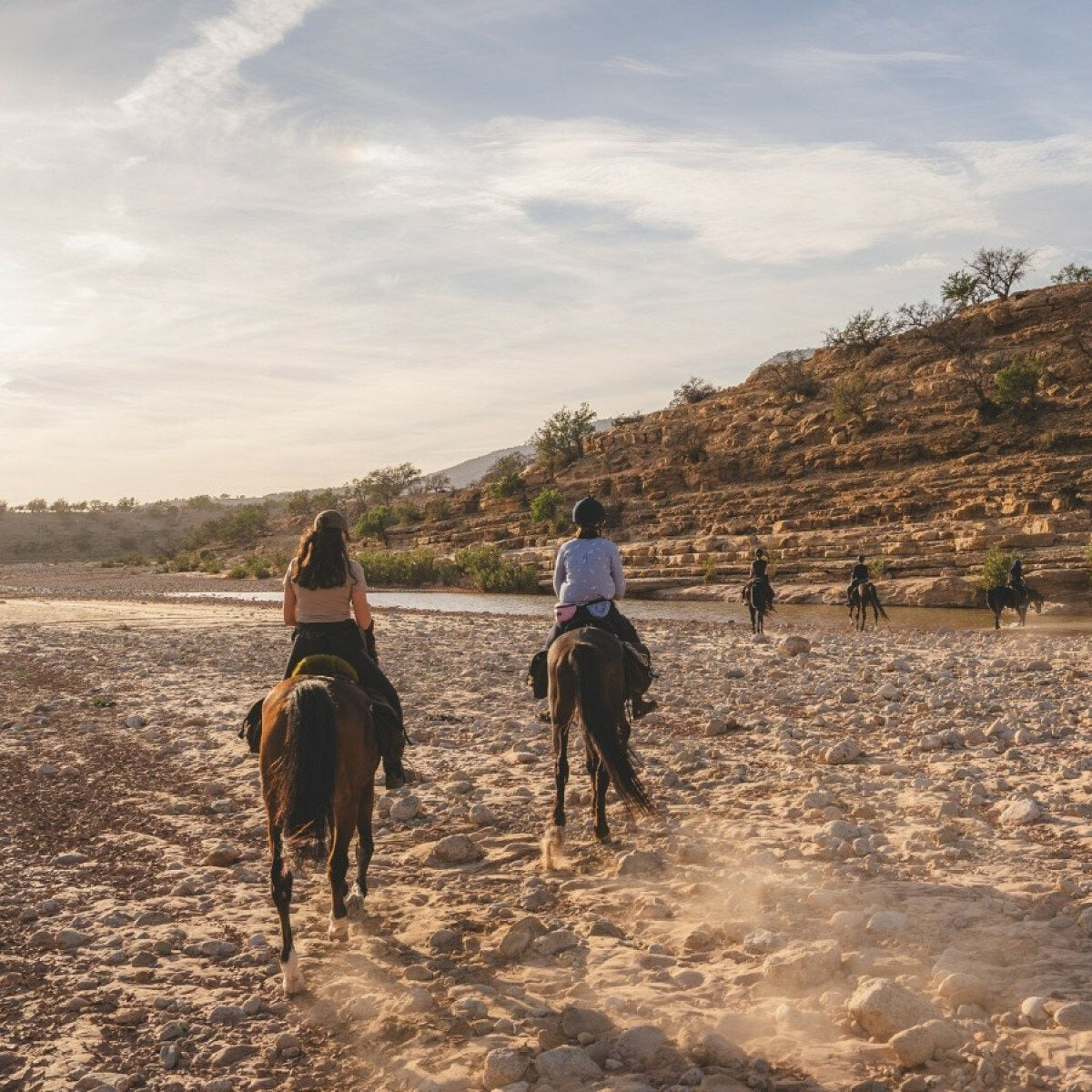What's the best time to visit Morocco? Any month is certainly a good time to plan a trip to Morocco from Italy, but if you have the choice, it's much better to plan your trip during the low season.
In winter, for example, the days are long enough to allow for many activities, and temperatures are probably the best of the year, as it's warm but not excessively so. Another factor not to be overlooked is that flight and accommodation prices are lower during the low season.
For all the information on how to organize a trip to Morocco, you can already read the article Practical tips for organizing a trip to Morocco
Furthermore, during the low season, there are fewer tourists around and these are the best times to discover the authentic Morocco because you can have more opportunities to meet the local population, coming into immediate contact with the peculiarities and traditions of the individual places you visit.
Especially when traveling away from the mass tourism destinations, it's not uncommon to be welcomed into private homes to chat, exchange thoughts, drink tea, or perhaps attend a village festival or even crash a wedding! This is why the low season is the best time to travel to Morocco, enjoying an authentic and direct connection with the land and its people.

Authentic Morocco: meeting the people
A travel itinerary in Morocco should always include a few days in the rural areas inhabited by the Amazigh population. It is here that it is easier to savor and experience firsthand the hospitality, generosity, and spirit of sharing that characterize small communities and villages.
Few cars pass through here, and mules are the main means of transportation. Often, just bringing a gift of fruit or a few dates is enough to see the doors swing open.
Even though I've lived here for many years, I still experience the same emotions every time I accompany groups to the Amazigh villages. Some time ago, during a horseback excursion, I looked into the garden of a woman who was baking bread on the fire, and without my asking, she offered me a piece of bread: a simple yet heartfelt gesture, made with the spontaneity of someone who has nothing but gives you everything, giving you emotions to treasure as the best memory of a trip to Morocco.
If you then decide to spend a few days with a family, you can fully immerse yourself in local life and enjoy an unparalleled travel experience. Ranch de Diabat can help you plan your stay with families in nearby villages: by doing so, you can also support the local economy responsibly.
The local markets: souks and hanout
Another unmissable experience to truly experience life in Morocco is to visit the local markets. We're not just talking about the colorful weekly souks , present in every city and immortalized in thousands of photos on social media.
A different but equally interesting experience is to visit the hanouit , small shops in the villages where you can buy just about anything and where locals go to do their shopping. The thrill of being "lost in the middle of nowhere" yet finding everyday objects, from a toothbrush to a lighter, from a Band-Aid to a gas canister, opens up a new dimension to everyday life.
For us, the authenticity of a trip to Morocco lies in the opportunity to see firsthand how local communities live , far from mass tourism and the mainstream images we're used to seeing online. Understanding the unique characteristics of each region and traveling with the intention of showcasing them is also the best way to behave responsibly and sustainably.

Authentic Morocco: Sustainable travel to boost the local economy
If you love truly connecting with the local population and getting to know the authentic side of the country you're traveling to, the most effective and ethical way is to purchase goods and services from local suppliers.
Choose to stay in Moroccan-owned properties—a small riad is better than a large hotel chain. Consult official local guides. Take activities and excursions at locally managed properties that respect people and animals. Perhaps with small groups of travelers, rather than large groups that certainly have a greater impact on the places visited.
You can also support local economies by purchasing locally made products. Moroccan craftsmanship is so unique and of such exceptional quality that UNESCO has listed it as an Intangible Cultural Heritage of Humanity. Bringing home an artisan-made item is a way to support the economy of small businesses and take home a unique, high-quality souvenir.
Be careful, though: there are also many low-quality items on sale, completely unlike those produced by artisans. So how can you distinguish genuine products from imported ones? Artisan-made items inevitably have small imperfections, as they are entirely handmade. The shapes are expertly crafted, and the materials are high-quality, unlike those used in imitation products, which are typically made of plastic and all look identical.
Respect customs and traditions in Morocco
Traveling authentically also entails a small duty on the part of tourists: to always respect local customs, habits, sensitivities, and traditions, which may differ from your own. Morocco is a Muslim country, and it's appropriate to dress modestly, especially in less touristy areas, covering shoulders and knees. Extra caution is required if traveling during Ramadan: ask locally about the best practices for food and drink during the day.
Authentic Morocco: Experience the Ranch del Diabat
Precisely with a view to enhancing the authenticity of our region and the people who live there, at the Ranch we pay great attention to caring for the places and the relationships between travelers, residents, and, of course, the animals. Our connection with Morocco begins with the horses that live with us at the Ranch and accompany us on our explorations of the natural riches surrounding Essaouira.
We invite you to discover authentic Morocco with us, in the company of our horses: we organize horse trekking in Essaouira, along the Atlantic coast, or in the Moroccan desert. We take you to discover the Amazigh villages and let you experience the thrill of sleeping in a bivouac, set up in places where you can admire wonderful sunsets, taste the local cuisine and learn about the culture through music and dance.
Discover our activities: Horseback trekking in Essaouira



